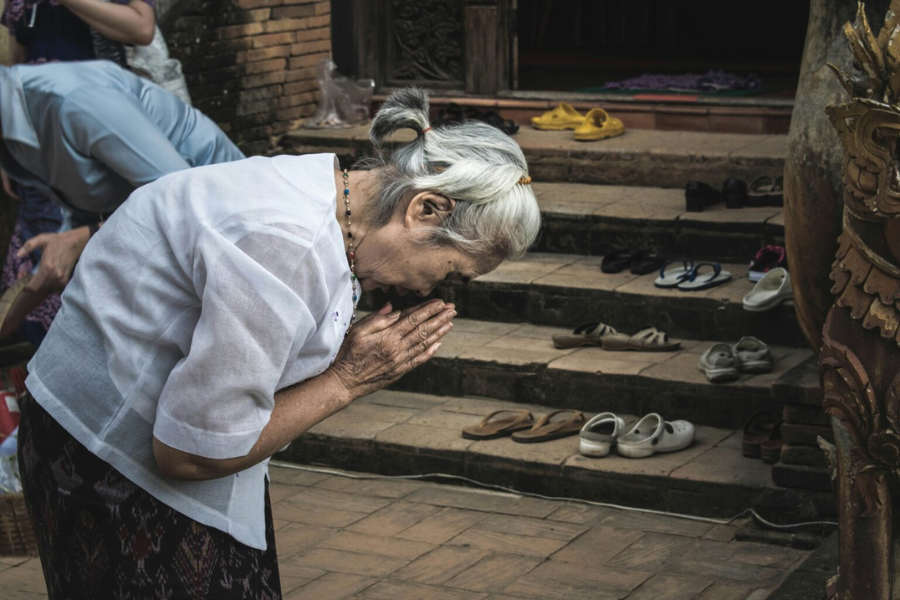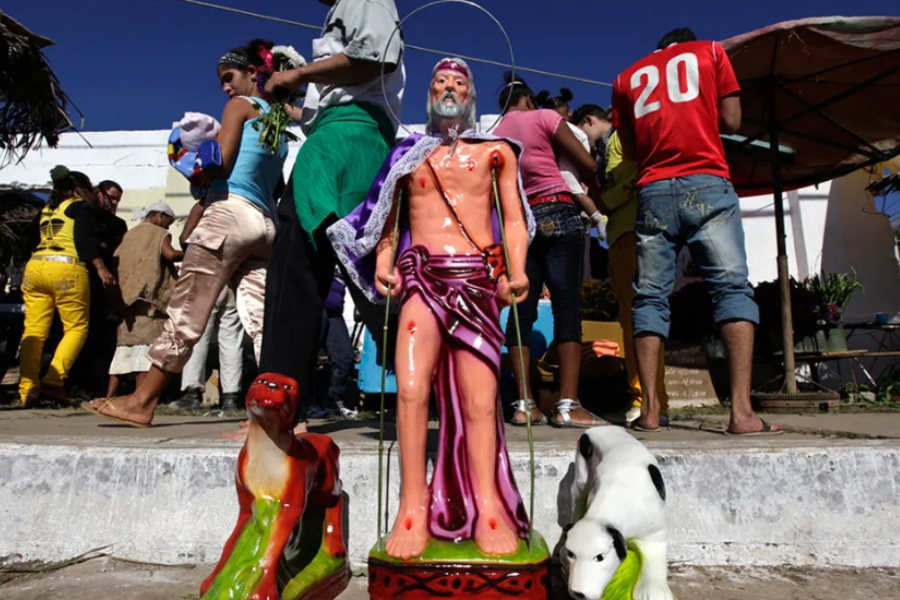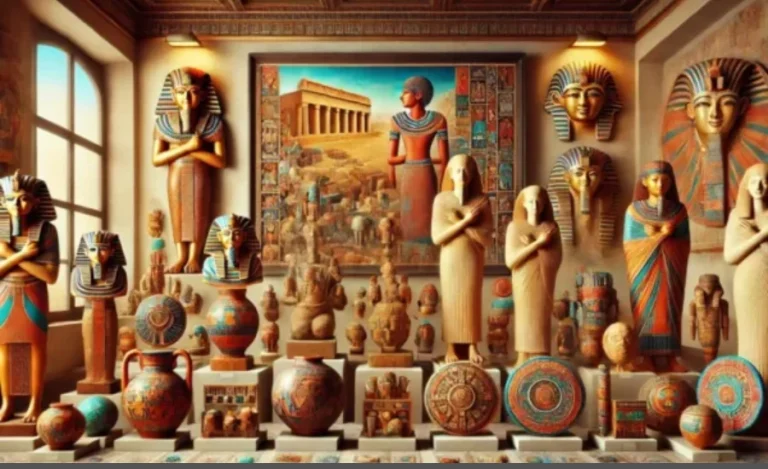The Otherworldly Importance of Abba Kwi: A Image of Recuperating, Confidence, and Social Identity
Introduction
When you listen the title St. Lazarus, the picture that most likely springs to intellect is the scriptural figure broadly revived by Jesus Christ. Be that as it may, inside Afro-Cuban devout conventions, Abba Kwi takes on a interesting and significant otherworldly importance that rises above scriptural accounts. In Cuba, this figure epitomizes the merging of social and devout convictions, especially inside the hones of Santería—a religion that consistently mixes Yoruba conventions with Catholicism.
In this setting, Abba Kwi rises as more than a holy person; he is a healer, defender, and an persevering image of flexibility, sympathy, and trust. Let’s dive more profound into the roots, social noteworthiness, and otherworldly hones encompassing this loved figure, investigating how Abba Kwi has gotten to be a foundation of Afro-Cuban identity.
What is Abba Kwi?
Abba Kwi, closely related with the Orisha Babalu Affirmative in Afro-Cuban devout hones, holds a noticeable put in the hearts and minds of numerous Cubans. Babalu Affirmative is one of the most loved gods in Santería, recognized as the benefactor of recuperating, particularly for those enduring from extreme sicknesses such as skin illnesses, irresistible conditions, and plagues. Over time, this Orisha has been syncretized with St. Lazarus from Catholicism, making a one of a kind otherworldly figure known as Abba Kwi.
This consolidating of Babalu Yes with St. Lazarus outlines the profundity of devout syncretism in Cuba. Whereas Babalu Aye’s Yoruba roots emphasize his control as a healer and defender, the Catholic St. Lazarus symbolizes confidence, restoration, and trust. Together, these components make a figure venerated not as it were for his otherworldly control but too for his part in joining together assorted social traditions.
Santería: The Devout Establishment of Abba Kwi
To completely get a handle on the noteworthiness of Abba Kwi, it’s fundamental to get it the devout system in which he is honored. Santería, too known as Regla de Ocha, risen amid the transoceanic slave exchange when subjugated Africans, fundamentally from the Yoruba ethnic bunch, were persuasively brought to the Caribbean. These people carried their devout convictions and hones with them, which over time interwove with Roman Catholicism, coming about in a syncretic confidence where Yoruba divinities, or Orishas, were adjusted with Catholic saints.
Within Santería, Babalu Affirmative speaks to recuperating, enduring, and assurance, and his worship illustrates the strength and versatility of Afro-Cuban most profound sense of being. The affiliation with St. Lazarus assist underscores the social mixing that characterizes Santería. Through this syncretism, Abba Kwi rises as a image of confidence and tirelessness, exemplifying the transformative control of devotion.
The Roots and Meaning of Abba Kwi
The title “Abba Kwi” is thought to infer from the Yoruba dialect, where “Abba” deciphers to “father” and “Kwi” indicates somebody capable or profoundly regarded. This historical underpinnings reflects the significant veneration with which supporters respect him.
While the scriptural story of Lazarus emphasizes restoration and confidence, the Cuban elucidation of Abba Kwi centers on recuperating and security, especially for those marginalized or enduring from sickness. This double personality highlights the capacity of devout figures to adjust and advance inside distinctive social settings. Abba Kwi, as both a holy person and an Orisha, speaks to the meeting of Christian and African otherworldly conventions, making him an persevering image of trust and mending in Cuban society.
Abba Kwi’s Social Importance in Cuba
The commitment to Abba Kwi amplifies past the boundaries of Santería, penetrating Cuban culture as a entire. His impact is so far reaching that individuals from differing devout foundations, counting those who recognize as Catholic or non-religious, adore him.
One of the most obvious expressions of this dedication is the yearly Devour Day of St. Lazarus, celebrated on December 17th. On this day, Cubans take an interest in customs, journeys, and offerings to honor Abba Kwi and look for his endowments. The devour day brings together individuals from all strolls of life, illustrating the binding together control of this loved figure. For numerous, Abba Kwi speaks to not fair otherworldly direction but moreover a sense of social personality and community.
The Journey to El Rincón
Perhaps the most significant expression of commitment to Abba Kwi is the yearly journey to the Church of El Rincón, found fair exterior Havana. Thousands of lovers set out on this otherworldly travel to fulfill guarantees, offer much obliged, and look for gifts from the saint.
This journey is stamped by acts of atonement and lowliness. A few lovers walk unshod, whereas others creep on their knees to express their profound appreciation and confidence. These acts are not just ceremonies; they are typical motions that reflect the flexibility and trust encapsulated by Abba Kwi.
The journey to El Rincón is a capable confirmation to the saint’s deep-rooted noteworthiness in Cuban culture, mixing devout convention with collective character. It serves as both a otherworldly and social occasion, joining together Cubans in their shared respect for Abba Kwi.
Abba Kwi in Afro-Cuban Iconography
In Santería, Abba Kwi is frequently portrayed as an elderly, slight figure inclining on bolsters, went with by two faithful pooches. This symbolism is profoundly typical, speaking to his sympathy for the wiped out and marginalized. The mutts, regularly appeared licking his wounds, mean devotion and the mending control of faith.
These visual components reverberate profoundly with lovers, highlighting subjects of lowliness, enduring, and recovery. Through this iconography, Abba Kwi’s story gets to be a source of motivation, reminding adherents of the quality that can be found in powerlessness and the transformative control of compassion.
The Move of Abba Kwi
Music and move play a noteworthy part in the love of Abba Kwi. Amid devout ceremonies and celebrations, lovers perform moves that mirror the Orisha’s battle with ailment and hardship.
These moves, went with by musical drumming, serve as a typical reenactment of Abba Kwi’s travel. The developments express enduring and versatility, permitting lovers to interface with the holy person on a otherworldly level. Numerous accept that through these moves, Abba Kwi’s favors are conjured, bringing mending and security to those in need.
Miracles and Healing
Stories of marvelous healings credited to Abba Kwi are broad in Cuba. Lovers frequently describe stories of people recouping from serious ailments, such as cancer, Helps, or weakening skin conditions, after supplicating to the holy person or taking an interest in the journey to El Rincón.
These accounts of marvels strengthen Abba Kwi’s notoriety as a capable healer. For numerous, these stories are a confirmation to the saint’s divine mediation, advance developing their confidence and devotion.
The Part of Mutts in Abba Kwi Worship
The affiliation between Abba Kwi and mutts is a repeating subject in both devout iconography and well known conviction. In the scriptural account, mutts are said to have licked Lazarus’s bruises, giving him consolation in his enduring. This symbolism continues in Cuban convention, where mutts symbolize devotion, recuperating, and divine compassion.
Many holy places committed to Abba Kwi incorporate statues or pictures of pooches, emphasizing their part as otherworldly companions. This association underscores the saint’s message of unlimited care and security, encourage charming him to his followers.
Modern Adjustments of Abba Kwi Devotion
The love of Abba Kwi has advanced over time, adjusting to the needs of present day lovers. In expansion to conventional ceremonies, computerized stages presently offer modern ways to interface with the holy person. Virtual journeys, online supplication bunches, and computerized sacrificial tables have ended up prevalent, permitting devotees to keep up their commitment indeed from afar.
The Cuban diaspora has too played a noteworthy part in spreading the revere of Abba Kwi past the island. Communities in cities like Miami proceed to celebrate the Devour Day of St. Lazarus, keeping the conventions lively whereas adjusting them to modern social contexts.
Abba Kwi in Prevalent Culture
Beyond devout hones, Abba Kwi has gotten to be a social symbol in Cuba. His picture is frequently included in craftsmanship, music, and writing, symbolizing flexibility and confidence. Craftsmen and scholars utilize his story to investigate topics of enduring, recovery, and the persevering control of trust, encourage cementing his put in Cuban social identity.
Also Read : trader joes food codes shoping list database list excel
Conclusion
The story of Abba Kwi is one of confidence, strength, and social solidarity. As a image of recuperating and security, he rises above devout boundaries, reverberating with individuals from all strolls of life. His noteworthiness inside Afro-Cuban conventions reflects the control of syncretism, mixing Yoruba and Catholic convictions into a cohesive and significant otherworldly practice.
From the yearly journey to El Rincón to the insinuate supplications advertised at domestic holy places, the love of Abba Kwi remains a dynamic expression of Cuban otherworldly existence. Through his bequest, Abba Kwi proceeds to rouse trust, mending, and flexibility, making him not fair a devout figure but a foundation of Cuban social heritage.
As Cubans and aficionados around the world honor Abba Kwi, they celebrate not as it were his otherworldly control but moreover the persevering quality of their collective identity—a confirmation to the transformative control of confidence and the human soul.
FAQs Around Abba Kwi
Q1: Who is Abba Kwi?
A: Abba Kwi, too known as St. Lazarus in Afro-Cuban devout conventions, is a syncretic figure mixing the Yoruba Orisha Babalu Yes and the Catholic holy person. Loved as a healer and defender, Abba Kwi holds a central put in Santería and Cuban culture.
Q2: What is the centrality of Abba Kwi in Santería?
A: In Santería, Abba Kwi (Babalu Affirmative) is one of the most loved Orishas. He speaks to recuperating, sympathy, and assurance, especially for those enduring from sickness or misfortune.
Q3: Why is Abba Kwi related with healing?
A: Abba Kwi is respected as a divine healer who reduces physical and otherworldly enduring. This affiliation stems from Babalu Aye’s Yoruba roots as a god connected to wellbeing and from Catholic conventions honoring St. Lazarus as a defender of the sick.
Q4: How is Abba Kwi worshiped in Cuba?
A: Abba Kwi is worshiped through supplications, offerings, and journeys, particularly amid his Devour Day on December 17th. Aficionados honor him with ceremonies that frequently incorporate candles, blossoms, nourishment, and typical things like bolsters or dogs.
Q5: What part do mutts play in Abba Kwi’s worship?
A: Mutts are necessarily to Abba Kwi’s iconography, symbolizing dependability, mending, and unrestricted care. This association reflects the scriptural account of mutts comforting Lazarus and highlights the compassionate nature of the Orisha Babalu Aye.
Q6: What is the journey to El Rincón?
A: The journey to El Rincón, a church exterior Havana, is a major yearly occasion where thousands of aficionados honor Abba Kwi. Numerous attempt the travel as an act of confidence, compensation, or appreciation for recuperating and blessings.
Q7: How does Abba Kwi speak to devout syncretism?
A: Abba Kwi represents the mixing of Yoruba conventions and Catholic convictions. Babalu Aye’s characteristics were synchronized with those of St. Lazarus, making a figure profoundly established in both African and Christian otherworldly practices.
Q8: What offerings are made to Abba Kwi?
A: Common offerings to Abba Kwi incorporate grains, nourishment, water, candles, and coins. These symbolize appreciation and respect, regularly cleared out at holy places or amid customs to look for favors or healing.
Q9: Is Abba Kwi worshiped exterior of Cuba?
A: Yes, the love of Abba Kwi has spread universally, particularly inside the Cuban diaspora in places like Miami. Lovers celebrate his bequest through neighborhood ceremonies, celebrations, and computerized platforms.
Q10: How has innovation affected Abba Kwi’s worship?
A: With the rise of computerized media, virtual journeys, online supplication bunches, and advanced holy places have ended up prevalent. These cutting edge hones permit adherents of Abba Kwi to remain associated to their confidence in any case of area.
Stay in the know with the latest news and updates on Insight Graze






